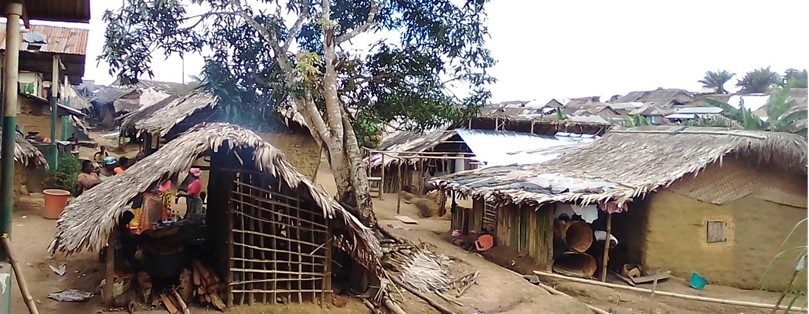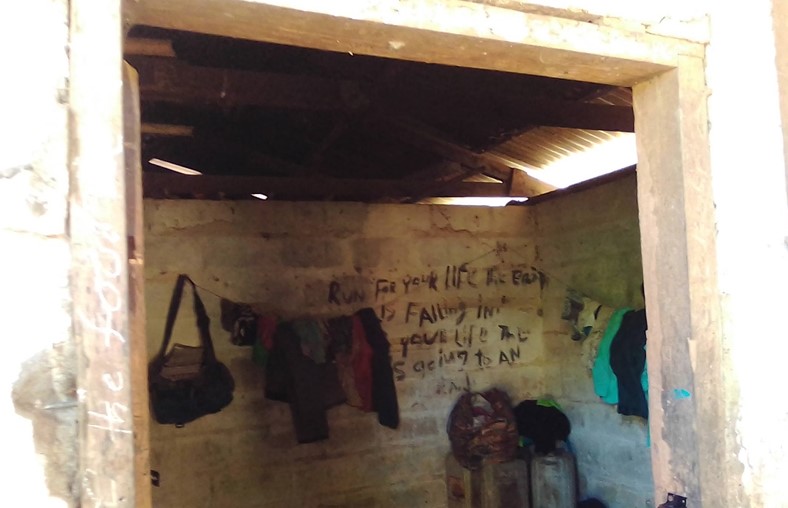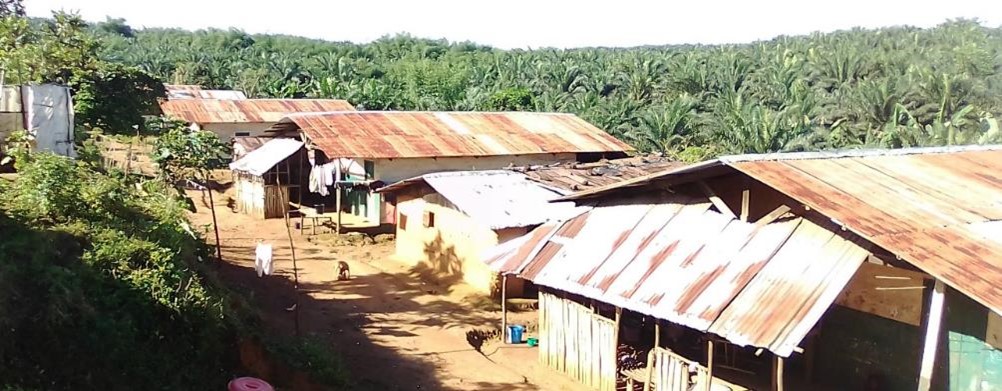BUCHANAN, Grand Bassa – The subsidiary of the Equatorial Palm Oil Company operating in Grand Bassa has admitted to recent claims by county residents that it is not meeting its responsibilities under its concession agreement.
The company initially entered into an agreement with the government in 1965 for the development of oil palm and other related agricultural products in Grand Bassa’s fifth district. Former President Ellen Johnson Sirleaf approved the agreement in 2008.
There has been no new amendment modification or repeal made to the agreement. But citizens of Grand Bassa’s fifth district have accused the Liberian subsidiary of the company, Liberian Operations Incorporated or LIBINC, of failing to provide some of its social responsibilities specified in the concession agreement.
The citizens, under the umbrella of the Aggrieved Citizens United for Transformation of Kpogbarn Statutory District, had recently gathered in large numbers outside the company’s head office to petition the district representative, Rep. Thomas Goshua, to intervene on their behalf.
In a meeting on Tuesday, the company’s management admitted to the citizens’ allegations but attributed its failure to the slowdown of its operations and a reduction in cash flow.
Meanwhile, both the management and citizens have an agreement to enter into a memorandum of understanding for a new amendment to the concession agreement to reflect more direct benefits to the citizens.
Prior to the meeting with citizens, The Bush Chicken established in an investigation that most of the claims against the company had substance.
Section 7.4 of the company’s agreement with the government obligates it to continue the construction, rehabilitation, and renovation of damaged employee houses in the concession to a better standard for living, after its return following the end of the civil war.
However, The Bush Chicken established through a visit to the concession that workers are living in damaged and poorly constructed homes.

Homes built by workers in Yeaway camp. Photo: Sampson David.
The investigation established that only 15 houses in Yeaway Camp were constructed by the company. The rest were constructed by the workers themselves, using mud, sticks, and thatches. The shoddy state of the structures leaves workers and their families vulnerable to heavy rainfalls.
Besides the poorly constructed homes, workers and their families in Yeaway routinely practice open defecation, as only one of two pit latrines constructed in the camp by the company is functional.
Workers in the other two camps fully constructed by the company are better off than those in Yeaway and Neor, as their homes are better constructed and contain electricity.
However, each worker or family head, along with his or her dependent, is entitled only to a room. In some cases, more than eight persons, including parents and children of different sexes, are inhabiting a single room.
The company also did not fully comply with the concession agreement to supply workers with safe drinking water. Two of the three-hand pumps currently in Yeaway were constructed by the United Methodist Church and an international NGO, Merlin, and later rehabilitated by Rep. Goshua. Only one was constructed by the company, which is not enough to supply the entire population of the camp.
Even with the three hand pumps supplying Yeaway, some of its residents still have to use the nearby creek to fetch water for drinking and other purposes because of the large population.
A resident who spoke to The Bush Chicken only on conditions of anonymity for fear of retaliation said the number of buckets and gallons seen at the hand pumps during the early morning hours cannot permit everyone to get water from the pumps.
“We have to go to work in the morning,” the resident said. “No worker wants to go to work late or to even be marked absent every time.”

A creek used by some residents to wash and bathe. Photo: Sampson David.
He said because of the small spaces employees are entitled to, there are constant complaints from families against their neighbors.
“They are using one kitchen and one bathroom. Almost 12 persons [are] using one bathroom, one kitchen, and one living room. One family head to a room is not fine at all. How can a man and his wife, including his children, sleep in the same room?” he said.
“We like the company, but the company has to treat us good.”
In Neor Camp, where the company constructed 40 houses for workers, each house contains four bedrooms and every worker there, along with dependents, is entitled to a single bedroom. Some of the houses in the camp need major renovation.

Housing units in Neor Camp. Photo: Sampson David.
Another employee who also spoke on conditions of anonymity for fear of being reprimanded alarmed that the housing condition was a threat to their health and safety.
“We are still suffering. Some of these houses have no ceilings – mosquitoes [are] just demonstrating on human being body,” the employee said.
The employee is currently living outside of the camp while his six children are staying in the single bedroom assigned to him by the company.
A third employee also said the company’s failure to provide electricity in the homes of employees in Neor and Yeaway violates a collective bargaining agreement entered into by the company and the workers.
In the CBA, which is valid from January 1, 2018, to December 31, 2020, the company agreed to assign each employee to an electrified home or pay a monthly housing allowance of US$16 for unskilled laborers and US$18 for skilled laborers.
The homes of workers in both Neor and Yeaway camps do not have electricity, while some also lack improved sanitation facilities, another violation of the CBA that states: “The company shall provide sanitation, maintenance, hand pumps, toilets and bathrooms facilities at all of its camps (housing estate) as well as all of its working sites or wherever needed.”

One of the rooms assigned to an employee in Neor camp. Photo by Sampson David.
There are currently 324 unionized employees working for the company and more than 500 contractors on the plantation.
The 2008 Concession Agreement provides that 50 percent of the company’s top ten positions should be occupied by Liberians during the rehabilitation term and 75 percent during the regular term.
Those key positions identified in the agreement were the managing director, general manager, comptroller, operations manager, factory manager, technical services manager, agricultural operations manager, research and new development manager, human resource manager, and chief accountant.
The Bush Chicken’s investigation, however, revealed that Liberians only occupy the human resource manager and senior accountant positions. All others are still occupied by expatriates.
Employees at the company are waiting to see what decision will be made by their local authorities to ensure that the company begins complying with its obligations.
Featured photo by Sampson David



